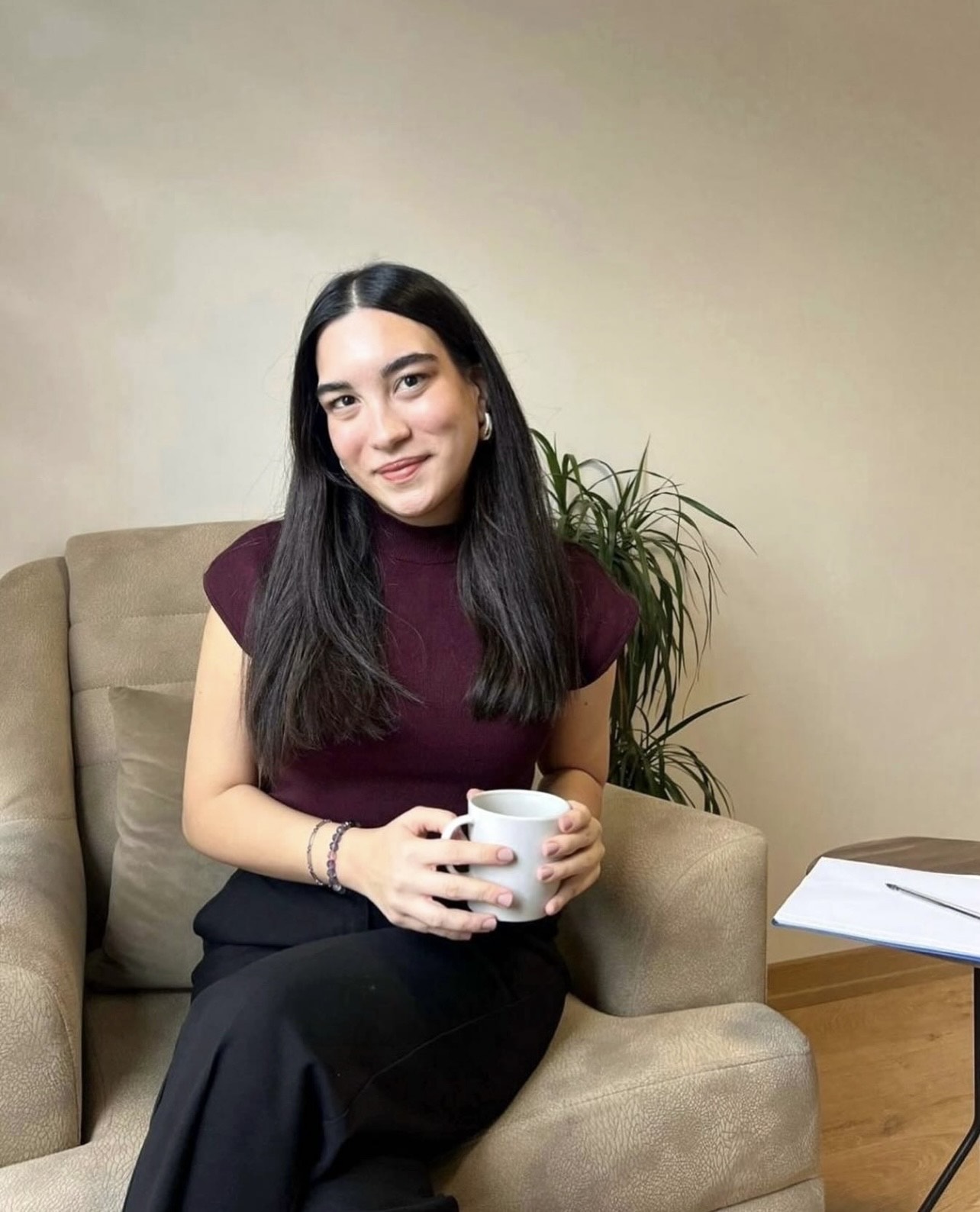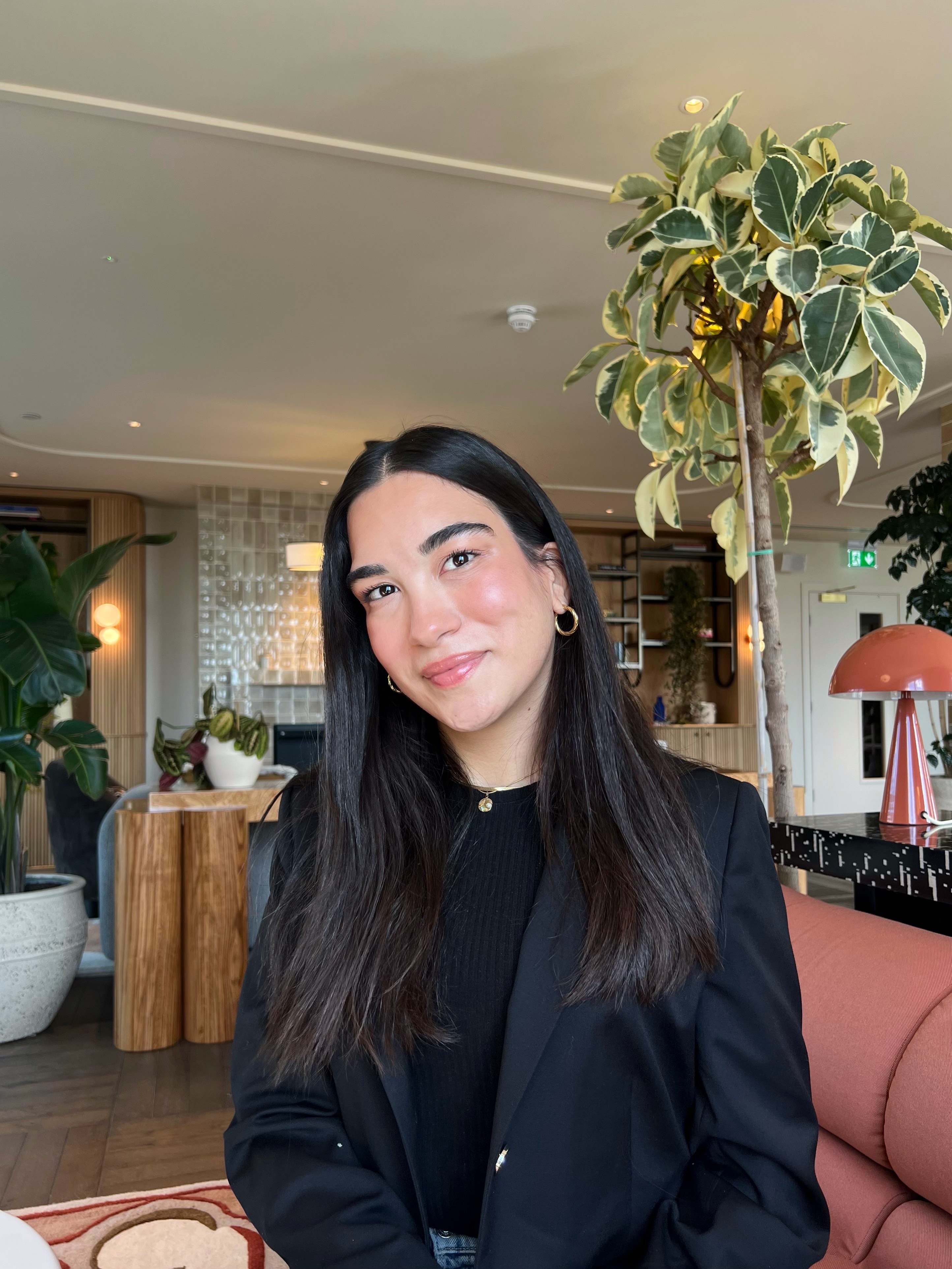
Ayça Gülfem Çiftçi – Clinical Psychologist, Rena Psychology & Eczacıbaşı Evital
“I studied psychology with great enthusiasm and truly enjoy working as a clinical psychologist. Being in a profession dedicated to understanding people is a strong source of motivation for me. With each client, I also grow and transform.”
Quick Bio
Undergraduate: Psychology, 2023
Master’s: Clinical Psychology, 2024, University of Sussex, United Kingdom
During Undergraduate Studies: Research Assistant, Social Interactions Research Group (with Gül Günaydın & Emre Selçuk)
Position: Clinical Psychologist, Rena Psychology & Eczacıbaşı Evital
Location: Istanbul
Short Q&A
What does your current job involve? What’s a typical day like?
A large part of my work consists of therapy sessions I conduct with my clients. In addition, since psychology is a field where learning and development never truly end, supervision meetings, various training programs, and professional readings also make up an important part of my work.
How did your psychology education at SU support your transition into work life?
During my undergraduate years, I had the opportunity to take courses from many subfields of psychology as well as from other departments. Back then, I wasn’t quite sure how taking such diverse courses would benefit me, so I naturally focused more on clinical courses. But over time, I realized how these subfields and other disciplines complement and enrich each other. Thanks to the interdisciplinary education at Sabancı, I developed a more holistic perspective, which has been very helpful in my interactions with clients.
After graduation, did you enter this field directly, or how did your journey unfold?
In the year I graduated, I applied to master’s programs in the UK and immediately started the Clinical Psychology program at the University of Sussex. Since I already had a clear interest in clinical psychology, my path was largely set. During this process, I not only kept in touch with my professors at Sabancı but also connected with many alumni and exchanged ideas; hearing about their experiences was truly insightful for me. As a result, I decided the UK was the right choice. After completing my master’s, I returned to Turkey and began working as a clinical psychologist both at a private office and on an online platform.
How has your research experience at SU influenced your work today?
My research experience in Sabancı’s Psychology Program was both very enjoyable and very instructive. Experiencing all stages of a research project as an undergraduate made conducting my own research and writing my thesis during my master’s much more manageable. Having prior knowledge about planning research and data collection not only made the process easier but also contributed to my analytical thinking skills. Additionally, in a social psychology project I joined during undergrad, I conducted interviews with many married couples. This and similar experiences helped me develop skills in interpersonal communication and structured interviewing, and significantly increased my self-confidence.
What was your favorite course in the psychology program, and why?
My favorite courses were always those related to clinical and social psychology. Among the clinical courses, “Child and Adolescent Psychopathology,” taught by Prof. Feyza Çorapçı, was one I particularly enjoyed. Prof. Feyza Çorapçı shared many case examples and encouraged us to discuss them in class, which made the lessons both fun and very educational. I also really liked the “Stress and Well-being” course taught by Prof. Emre Selçuk. Many students outside the psychology department also took this course, and we explored the topic through research in the field of stress. I really enjoyed doing the readings for this class.
What advice would you give to current undergraduates?
What contributed the most to my development during undergrad were my research experiences and the volunteer work I did through SU’s Civic Involvement Projects (CIP). So, I would definitely recommend that undergraduates gain research experience in a lab, participate in volunteer activities, and do internships in different subfields of psychology. Also, staying in contact with professors and exchanging ideas with them is truly valuable when shaping our path after graduation. Graduation and the future can sometimes seem intimidating, but over time, we all find our own way. It’s just as important to avoid overwhelming ourselves, to protect our well-being, and to enjoy the journey.
What would you say to a student who’s considering psychology but still unsure?
Although psychology is often associated mainly with its clinical subfield, it is actually a very broad discipline with many different areas. All these subfields are connected and enrich one another. As a result, psychology offers many different career options after graduation. In my view, the best way to decide is to talk to alumni working in different fields, meet with faculty members, and explore all these career possibilities.
Did you stay in touch with your professors at SU after graduation?
Yes, I stayed in contact after graduation. In particular, I kept in touch with Prof. Emre Selçuk and Prof. Gül Günaydın, with whom I worked as a research assistant and who also mentored me in many ways. One of my favorite things about Sabancı was how our professors’ doors were always open to us, and how they made us feel that—even after graduation—they were just an email away.